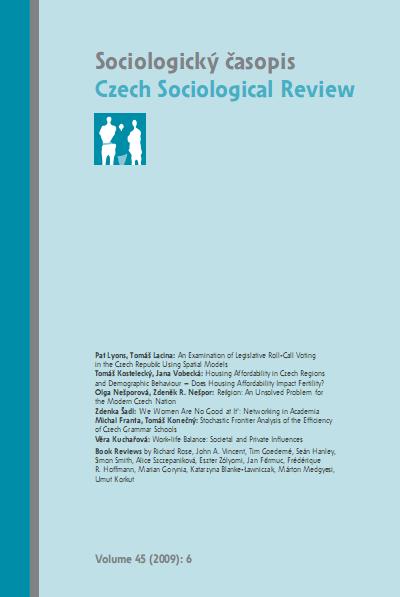An Examination of Legislative Roll-Call Voting in the Czech Republic Using Spatial Models
An Examination of Legislative Roll-Call Voting in the Czech Republic Using Spatial Models
Author(s): Tomáš Lacina, Pat LyonsSubject(s): Social Sciences
Published by: AV ČR - Akademie věd České republiky - Sociologický ústav
Keywords: roll-call voting; spatial models; legislative behaviour; Czech Republic
Summary/Abstract: It is not clear from previous research if influential spatial techniques for analysing roll-data used in the Houses of Congress in the United States are appropriate in European multiparty systems. This is because the results of spatial analyses of roll-call data from the United States are interpreted in terms of ideological preferences. Within Europe party discipline is also a central feature of legislator behaviour. Consequently, spatial models of roll call behaviour in European legislatures should be explained in terms of party cohesion and discipline. This means that the correct interpretation of spatial models of roll-call data in places such as the Czech Republic requires access to additional sources of empirical evidence such as parliamentary survey data in order to make valid and reliable inferences about what motivates legislative behaviour. Using roll-call and parliamentary survey data from the sixth legislature in the Czech Republic (2006–2008), this research demonstrates that spatial models of roll-call data are not readily explainable in terms of party cohesion and discipline. The difficulty of making a substantive interpretation of dimensions extracted suggests the use of spatial models of roll-call voting where part discipline is strong requires more theoretical and methodological work.
Journal: Sociologický časopis / Czech Sociological Review
- Issue Year: 45/2009
- Issue No: 06
- Page Range: 1155-1190
- Page Count: 36
- Language: English

